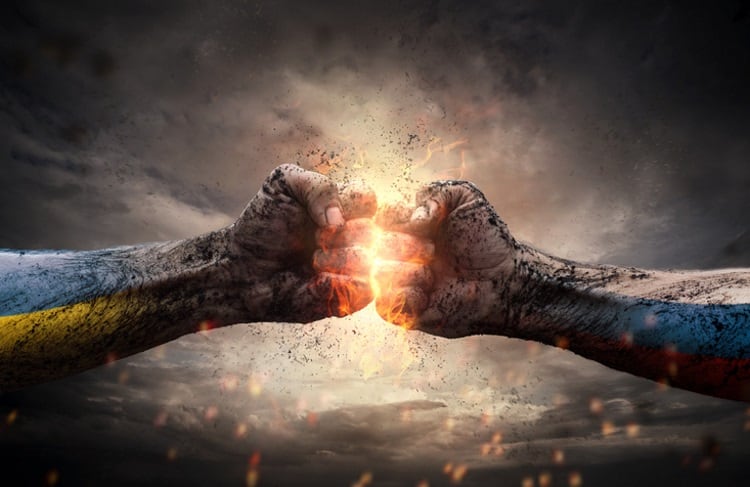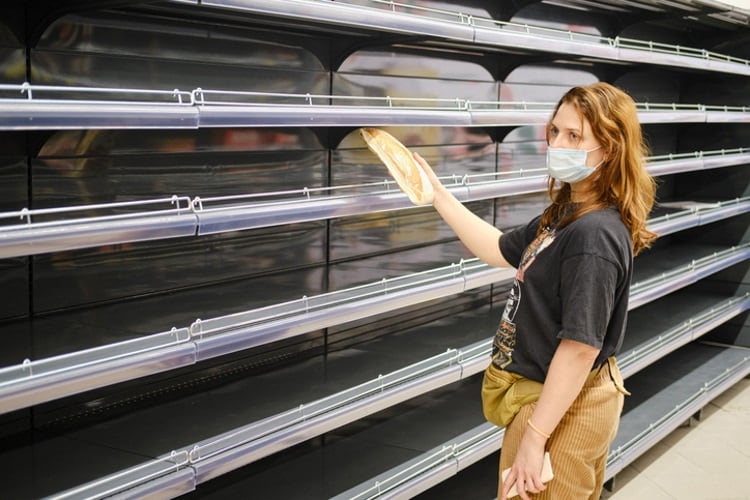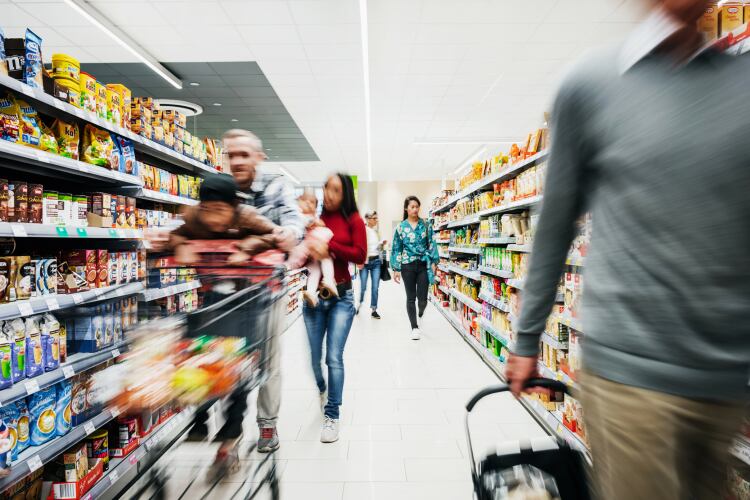Paul Morrow, chairman of British Bakels, told BakeryandSnacks the company will continue operating in Russia.
“We have a manufacturing site in Saint Petersburg and a commercial office in Moscow,” he said, adding the bakery ingredients specialist has a 50-strong workforce in the country.
“We issued a position statement at the beginning of the week confirming that we see our role in supplying bakery ingredients that bakers use to make bread to feed the common people. So, we will continue to manufacture in Russia and help feed the Russian people: they're not the one’s causing the problem.”
More than 30 large companies remain in Russia, despite significant pressure, Yale University senior associate dean Jeffrey Sonnenfeld – who is keeping a runny tally updated daily – told CBS Media.
Prof Sonnenfeld’s stance echoes Morrows, in that companies voicing "humanitarian concerns for the general Russian citizenry" are missing the point of the sanctions.
In the food space, those still maintaining a presence in Russia include Dunkin Donuts, Mondelez, Nestle, PepsiCo, General Mills, Cargill and fast food giant Subway.
Dunkin Donuts – which returned to Russia in 2010 after an 11-year absence – has 21 franchised-owned and operated outlets in Russia; Subway (around 450 franchise-owned and controlled outlets) said it would redirect profits from its Russian operations to humanitarian efforts; and US agricultural trading giant Cargill, which takes in around $1.1bn of revenue from Russia where it has 2,500 employees, is pairing back, tweeting, “It’s hard to comprehend the challenges our employees, customers and their families in the region face in the days and weeks ahead. Our first priority is their safety and for that reason we have closed some locations”.
Mondelez is also scaling back, but won’t halt operations completely.
In a letter to staff, Mondelez International chief executive officer Dirk Van de Put said the Oreo maker “condemns this unjust aggression.
“As a food company, we are scaling back all non-essential activities in Russia while helping maintain continuity of the food supply during the challenging times ahead. =
“We will also continue to support our colleagues in the market who are facing great uncertainty. We will focus our operation on basic offerings, discontinue all new capital investments and suspend our advertising media spending.
“We recognise this is a highly dynamic and very concerning situation that we will continue to assess and adjust as needed.”
Although it has suspended sales of its sodas, PepsiCo said it would continue to sell daily essentials, such as milk, baby formula and baby food, in Russia.
Nestle, too, which previously announced it had stopped all advertising in Russia, told Reuters it was taking a similar line to other food majors and would continue supplying essential products in Russia.
Great Russian boycott
More than 100 firms have now abandoned Russia or announced plans to do so, including Adidas, Tesco, Asda, Zara owner Inditex, Estee Lauder, Spotify, Ikea, Disney and H&M.
McDonald’s is the latest big food name to announce it is temporarily shutting its 850 restaurants in Russia, as did Burger King, Pappa John’s, Little Caesars, and Yum! Brands-owned KFC and Pizza Hut.
Unilever, Coca-Cola, Heineken and Yorkshire Tea have followed suit. The latter said it was “shocked and saddened” by the war and would no longer sell its products in the rogue state following international sanctions.
Kellogg’s reaches out to Ukrainian refugees
The breakfast cereal giant is donating $1m in cash to the UN Refugee Agency and The Global FoodBanking Network, as well as sending food aid.
“The tragic events in Ukraine continue to create an unconscionable crisis for the people of Ukraine and their family, friends and loved ones,” it said in a statement.
“We’re proud of how our Kellogg family comes together with huge heart to support others in times of need. It’s part of our DNA. For example, our teams in Poland and Romania have been preparing emergency accommodations and organizing food and personal care collections for those in need.
“Our thoughts are with the Ukrainian people.”
Russian cyberattack spurs snacks shortage
Meanwhile, on UK soil, Brits are starting to feel the effects of last month’s Russian cyberattack on KP Snacks.
Hula Hoops and McCoys snacks are in short supply in outlets like Tesco, Asda, Sainsbury’s and WHSmith’s across the UK, following a ransomware attack that ‘wiped out’ the snack producer’s IT systems.
The German-owned British producer of branded and own-label maize-, potato-, and nut-based snacks, was hit by hackers allegedly from the Conti ransomware gang believed to operate out of St Petersburg.
A KP spokesperson said the Slough-based company is back on track though.
“We continue to make progress in recovering from our recent ransomware incident. We have resumed production across our seven manufacturing sites, which has remained as planned.
“We would like to thank our customers for their support and flexibility while we work at pace to restore full supply.”
Canada gears up to avert global wheat crisis
CEO Dean Dias said Cereals Canada, a not-for-profit industry association that promotes the use of Canadian grains, is gearing up to cope with more enquiries as the war in Ukraine and sanctions against Russia dramatically dent the global wheat supply.
According to the UN’s Food and Agriculture Organisation (FAO), Russia is the world’s top wheat exporter and the largest producer after China and India. Ukraine is among the top five wheat exporters. If the war continues, farmers won’t be able to plant or harvest crops this spring, while supply of Ukrainian wheat already in bins will be disrupted should Russian troops block access to the Black Sea at the main port of Odesa.
“We are hoping for a swift, peaceful resolution in the Ukraine so … people will have food to eat,” said Dias.
“That’s the business we are in … providing global food security to the world. And we are working with our farmers and value chain to make sure that customers and other countries have enough food at the table.”
However, he notes the drought in Western Canada last year has resulted in lower yields and soil conditions that may not be conducive to bumper crops this year.
“We have enough supply to supply high-quality end users … but not enough to fill every wheat requirement around the world.”
Canadian farmers produce about 12% of the world's wheat, exporting to 70 countries. According to Dias, it's a higher quality and has more protein than much of what is grown in Russia and Ukraine, and thus more expensive to purchase.
Global wheat prices hit a 14-year high after the Russian invasion of Ukraine.





